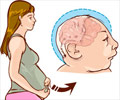The Epilepsy Foundation has urged women of childbearing age who take anticonvulsant medications for conditions that include epilepsy, migraine headaches, and certain psychiatric disorders
The Epilepsy Foundation has urged women of childbearing age who take anticonvulsant medications for conditions that include epilepsy, migraine headaches, and certain psychiatric disorders, to talk to their healthcare providers about treatment options. Nearly 2.1 million women are expected to join the cause towards reducing anti-convulsant medication related birth defects.
The Epilepsy Foundation began its outreach about the effects of anticonvulsants on women in the mid-1990s with an initiative to educate women with epilepsy and their physicians about emerging links between seizures, menstrual cycles and other interrelationships in women's reproductive health.Anticonvulsants are used to control seizures in people with epilepsy, but are more frequently prescribed for the treatment of non-epileptic neurological pain symptoms, such as migraine headaches and tremors, and for psychiatric conditions, such as mood and bipolar disorders. According to experts, there were more than 56 million prescriptions written last year making anticonvulsants the fifth most prescribed class of medications.
The risks to the fetus from anticonvulsant drug use occurs very early in the pregnancy and is compounded by the fact that nearly 50 percent of pregnancies in the United States are unplanned, leaving women unaware and unprepared for the potential risks.
The Epilepsy Foundation, through an unrestricted education grant from GlaxoSmithKline, has formulated the action plan to empower women to reduce the risks associated with anticonvulsant drugs, and establish a more successful partnership with their healthcare providers:
1. Work with your healthcare provider to find the medication that works best for you.
2. Talk with your healthcare provider about specific risks and benefits, both short and long term.
3. If you are planning a pregnancy or you are pregnant, talk with your healthcare provider as soon as possible.
4. Do NOT stop or reduce your medication for any reason without advice from your healthcare provider.
5. Take a multivitamin containing folic acid before and after conception
6. If you become pregnant, enroll in the North American Pregnancy Registry (888-233-2334 or www.aedpregnancyregistry.org) as soon as your pregnancy is confirmed.
7. Make sure that your anticonvulsant blood levels are monitored during pregnancy, and that your dose is changed as needed to prevent seizures or worsening of your condition
8. Ask about ways to prevent long-term effects such as osteoporosis.
9. If weight change occurs, ask your health care provider about diet options, medication alternatives and lifestyle adjustments that may help.
10. Stay on top of emerging information about anticonvulsant drugs.
This move has been made possible through sustained efforts of the Foundation along with help from medical professionals and Voluntary health.
Organizations from different regions of the globe. Finally, the success of the campaign would to a large extent depend on active participation form pregnant mothers.
 MEDINDIA
MEDINDIA
 Email
Email









